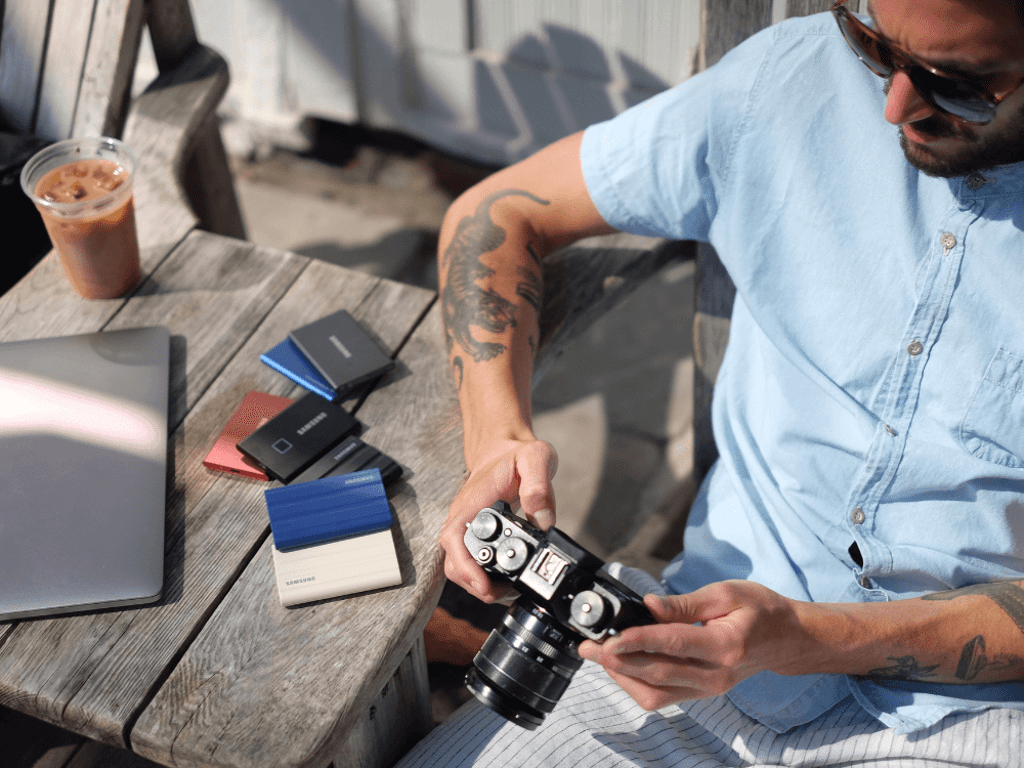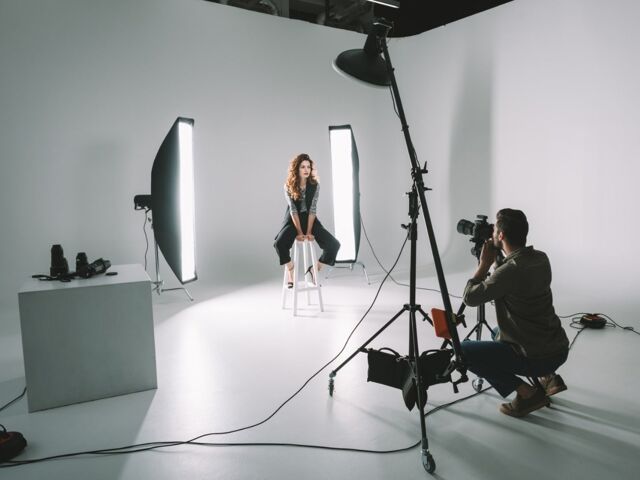
The world of product photography or commercial photography is exciting and always requires creativity and plenty of challenges. Its purpose is to promote, market, and highlight products to make them more appealing or irresistible to your customers. Product aesthetics matter the most, especially when promoting products on an eCommerce, regardless of your product, from food to clothing, accessories, or anything else.
Read on to discover some ideas to help you create powerful and evocative product images that will capture your audience's attention and help you sell more.
1. Add your product into a relatable scene
When thinking about photographing your product, it’s not all about how it looks but how it makes people feel. Your background can spark emotion and tell a story or mood. If you are not selling furniture, you are selling aspirational. Or you don’t need to sell the drink; deal the good moments with friends.
When you add the product inside a relevant scene, you make it relatable and approachable, and people can see how it could fit into their lives - or even add value to it. Shoot the product in the environment it is supposed to be used in - it’s no use to photograph outdoor gear on a white background inside a studio. Take your product outside, ask some friends to use it, and you will end up with more compelling product images that will engage your customers even more.

2. Showcase your product authentically
One of the main reasons why people return products is that real-life product doesn’t look as showcased in the product images. So, even if your products should be presented at their best possible angle and light, they must remain as close to reality as possible. Show close up to include details and ensure that the photo retouching process doesn’t alter the natural colors and texture of the product.
Provide high-quality product photography showcasing the product from multiple angles, use a white background or off-white background, and good photo studio lighting.

3. 360 degrees product photography
In a physical store, customers can touch and analyze the products from all angles to establish their quality. But online shopping changed that to the degree where sellers must do anything in their power to enhance the interaction with the product without the use of touch. In this case, 360-degree product photography can be an excellent solution to give your customers an engaging experience by allowing them to interact with the product online and look at it from more angles.
Read more about 360-degree product photography in another article on our blog.
4. Then, create an immersive experience using augmented reality
What not so long ago seemed like a science fiction scenario is now possible due to the advancements in Augmented reality. This new technology lets customers view dimensional tree products overlapped in real-life environments using their smartphones. This way, people can see how the product will look in their home or how the clothing might look on them - all from the comfort of their house.
Augmented reality is great for large objects, such as furniture, which is more challenging to return.
5. Feature people in your product images
By common sense, people love seeing others in product images or commercial content, making it easier for customers to resonate. Real people in real-life situations are more popular than purely informative content. More than 60% of the people in the study agree that brands featuring ordinary people are more likely to understand their customers.

6. Create a pattern using your products
A fantastic way to create exciting and memorable product photography is by repeating the product several times in an image to create a pattern. This product photography trick is relatively easy to set up and makes a nice rhythm pleasing to the human eye. In addition, creating these types of images allows you to engage with your social media audience, as minimalistic and clean imagery has risen above a world of clutter and over-distraction.
If you remove the background in your image, you can play with various other backgrounds during photo retouching. Also, you don’t need to bother creating the pattern from the camera, as you can always make an excellent effect with image editing.

7. Use props to elevate your composition
Props can be an excellent way to help your images stand out through exciting colors, textures, and complementary elements. The key is to select the props that make sense for your product, as their purpose is to emphasize your development rather than distract you from it.
What are props? Well, anything that can be used to support and add meaning to the main subject of your product photography. For example, props can give viewers a better idea of who you are and your brand personality.

8. Think of new ways of highlighting the product features
In product photography, the principle of “show me, don’t tell me” is more powerful than you can imagine. By finding creative ways of showcasing product features - instead of just listing them in the product description you can unlock the full potential of your product photos.
For example, think about the technical features of an outdoor jacket. You can use the power of image editing and photo retouching to add some rain, thus suggesting the item is waterproof, making it the obvious choice for outdoorsy people.
9. Work with a product stylist during the photo shoot
Creating the perfect setup, choosing props, and appealingly arranging them is not your strength. In this case, you can always collaborate with a stylist to help you get mind-blowing product photography. Try to find someone who understands your product and vision to ensure good compatibility; the result might end up even better than you thought.

10. Experiment with the fishing thread technique
Did you ever wonder how photographers create floating product photographs that look like they are defying gravity? One of the techniques you can try in your studio or outdoors is hanging the product with a transparent fishing thread. Then, suspend your products and position them upon an excellent background.
If there are any traces of the thread, you can easily remove them during image editing.
In conclusion,
You can use many ideas to elevate your product photography, enhance your user’s experience with your products and sell more! Product photography is a fun and challenging job. But, using creativity, technology, image editing, and out-of-the-box thinking, you can stand out from your competitors and create a successful online business.




